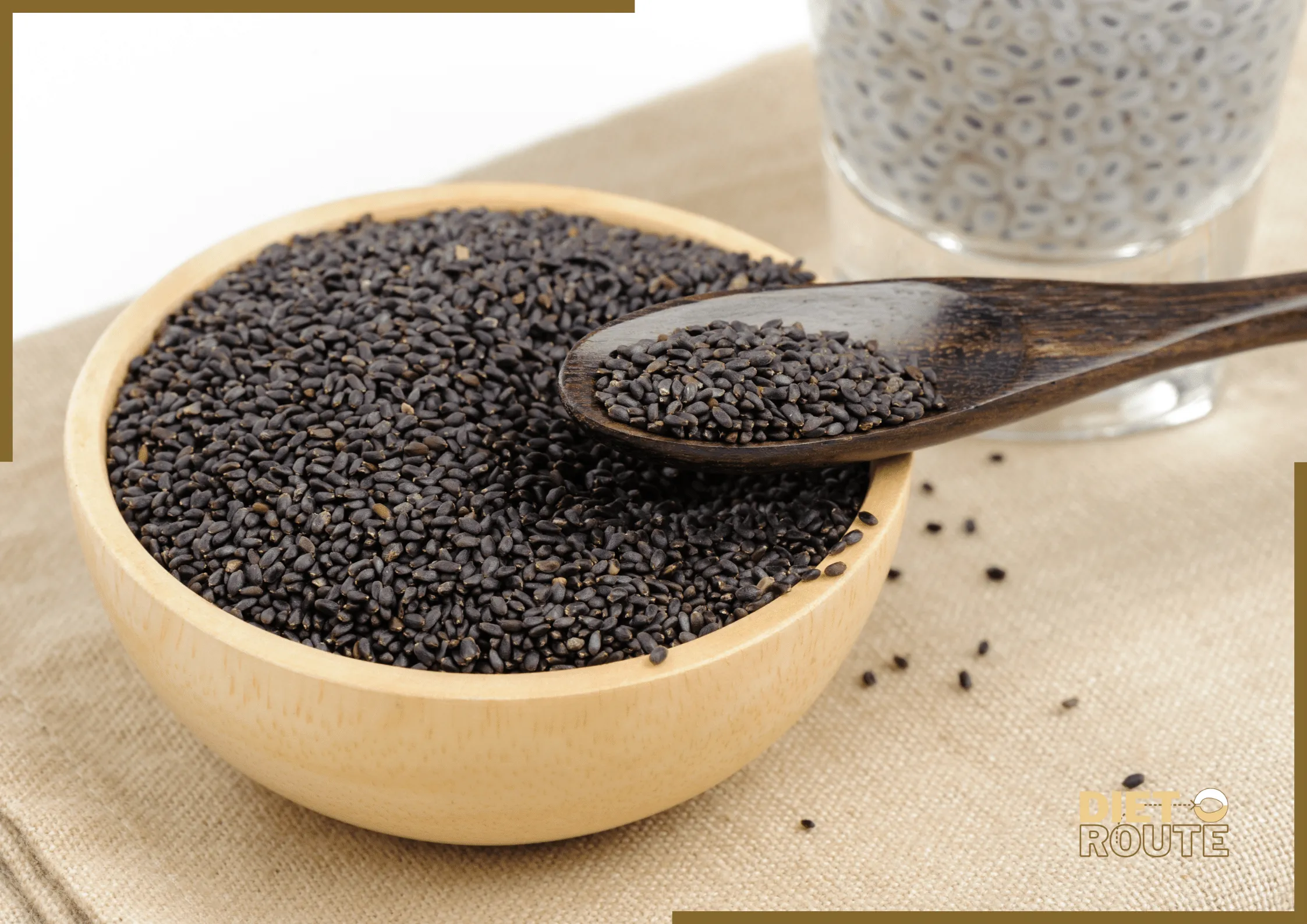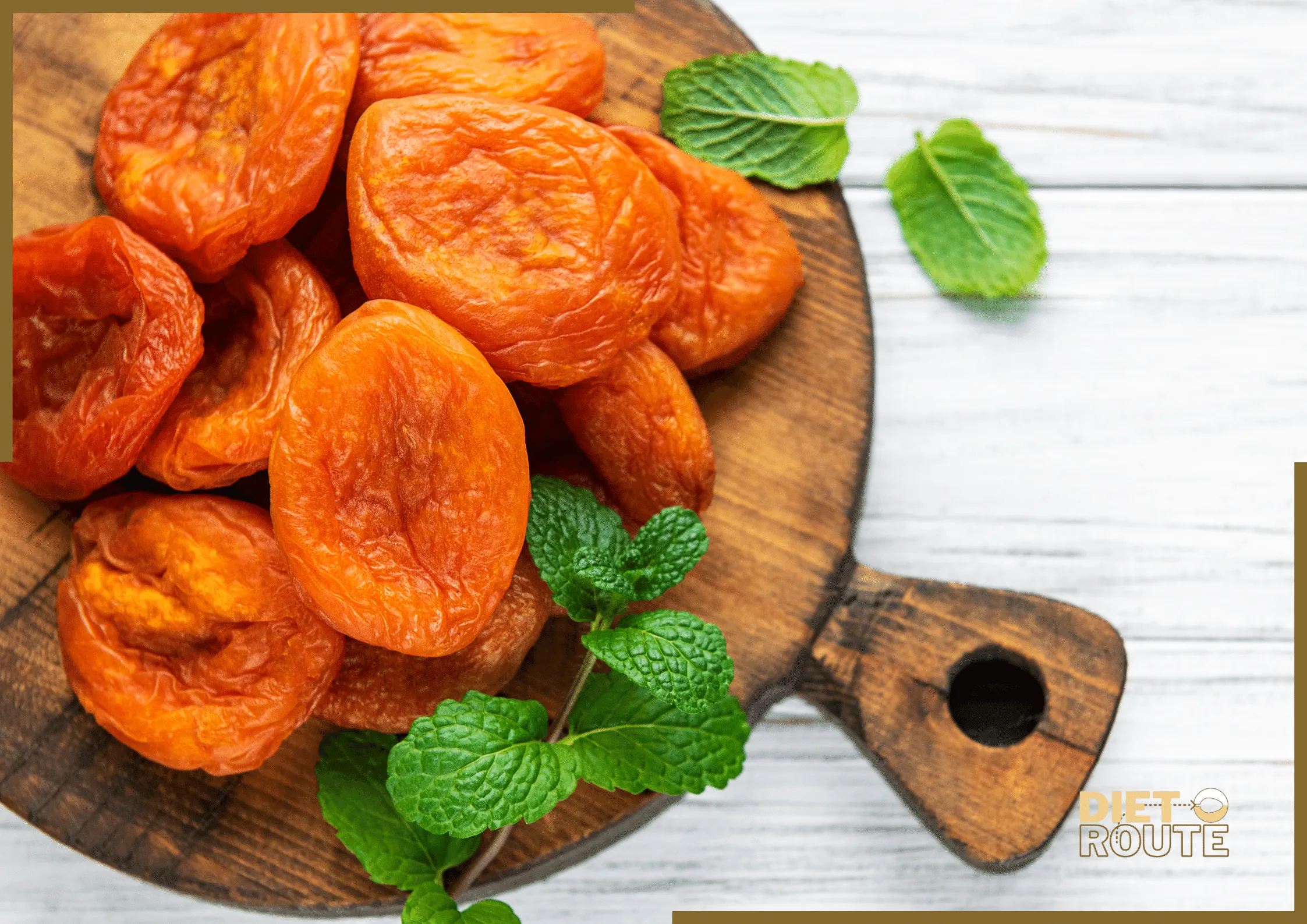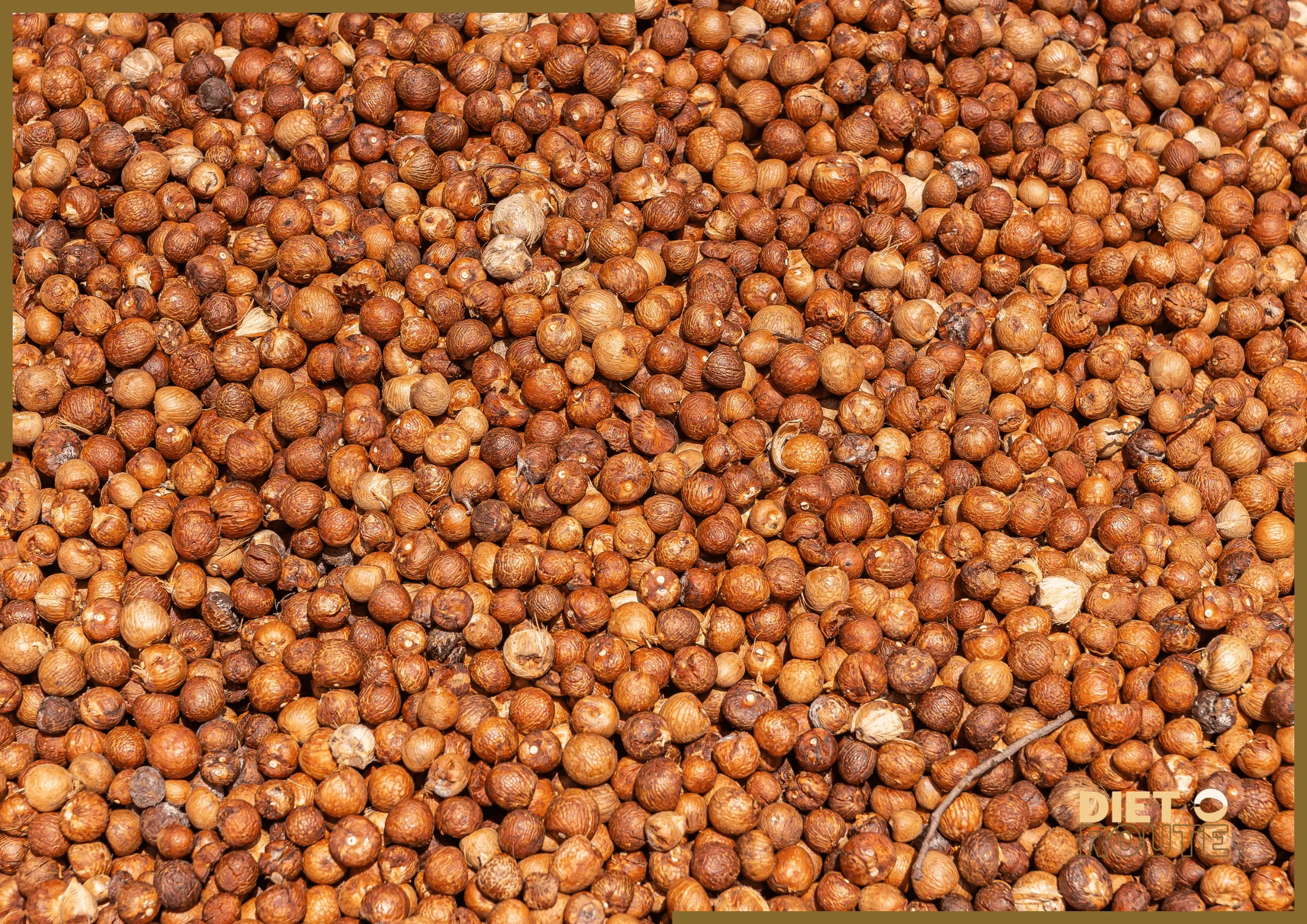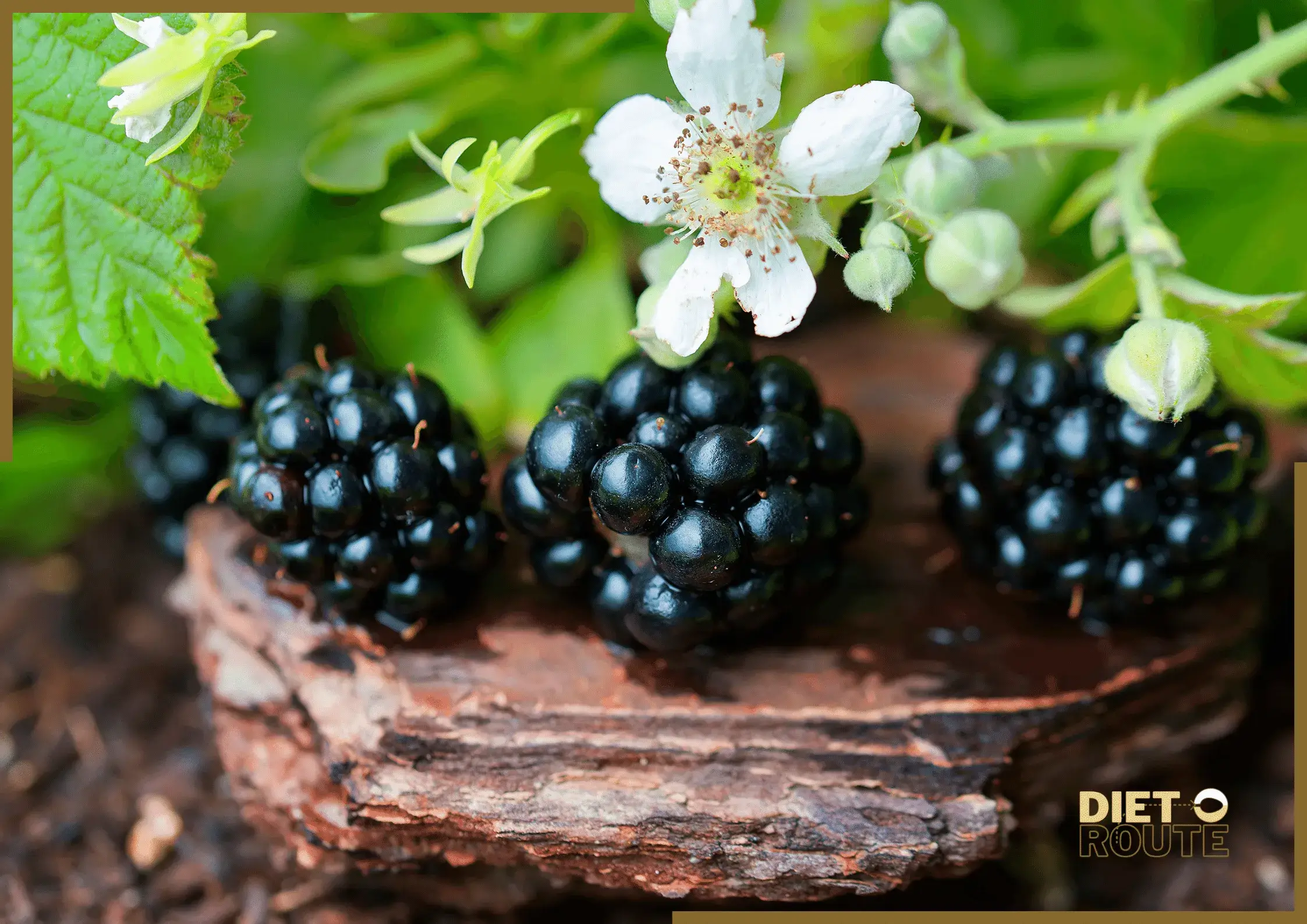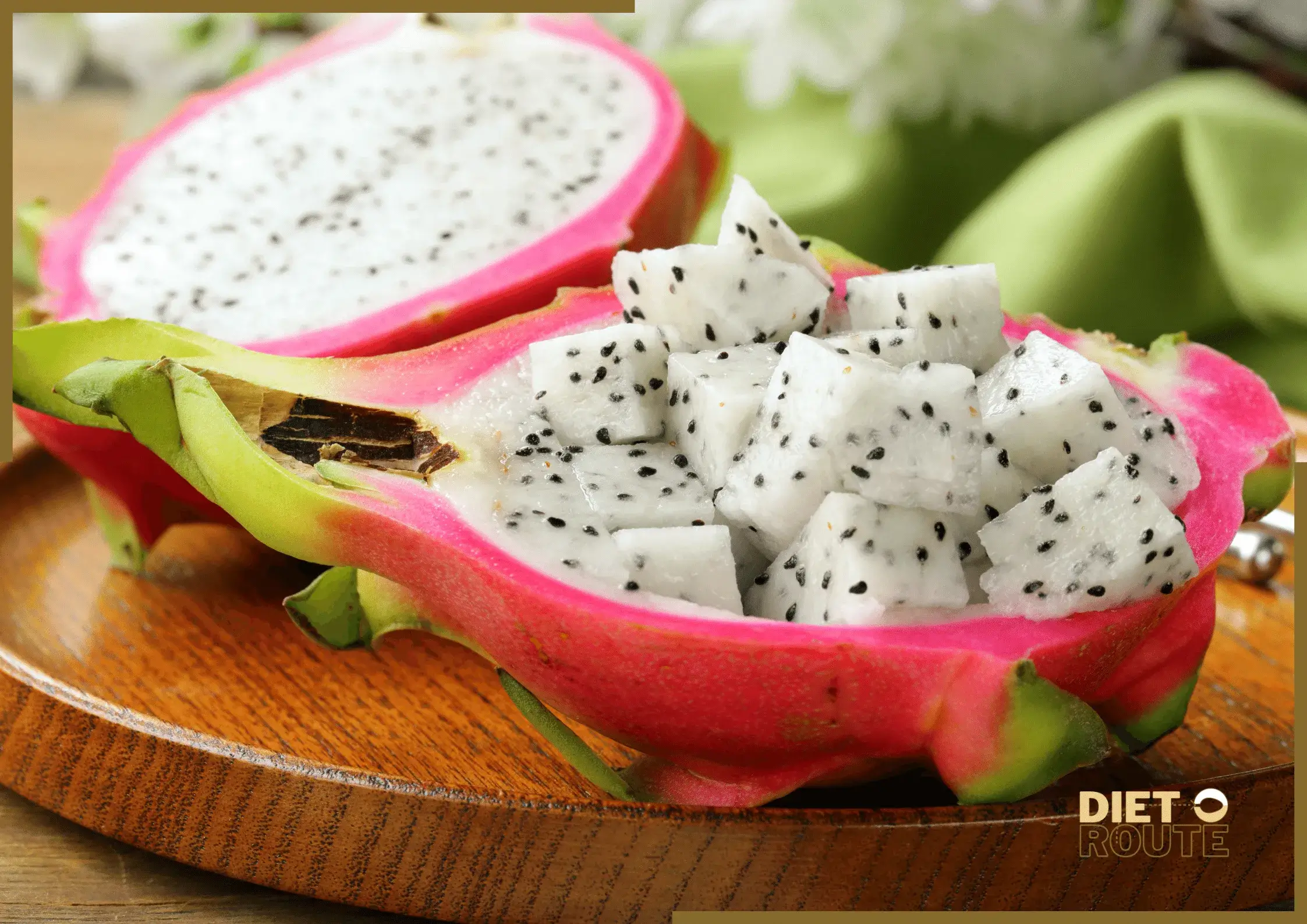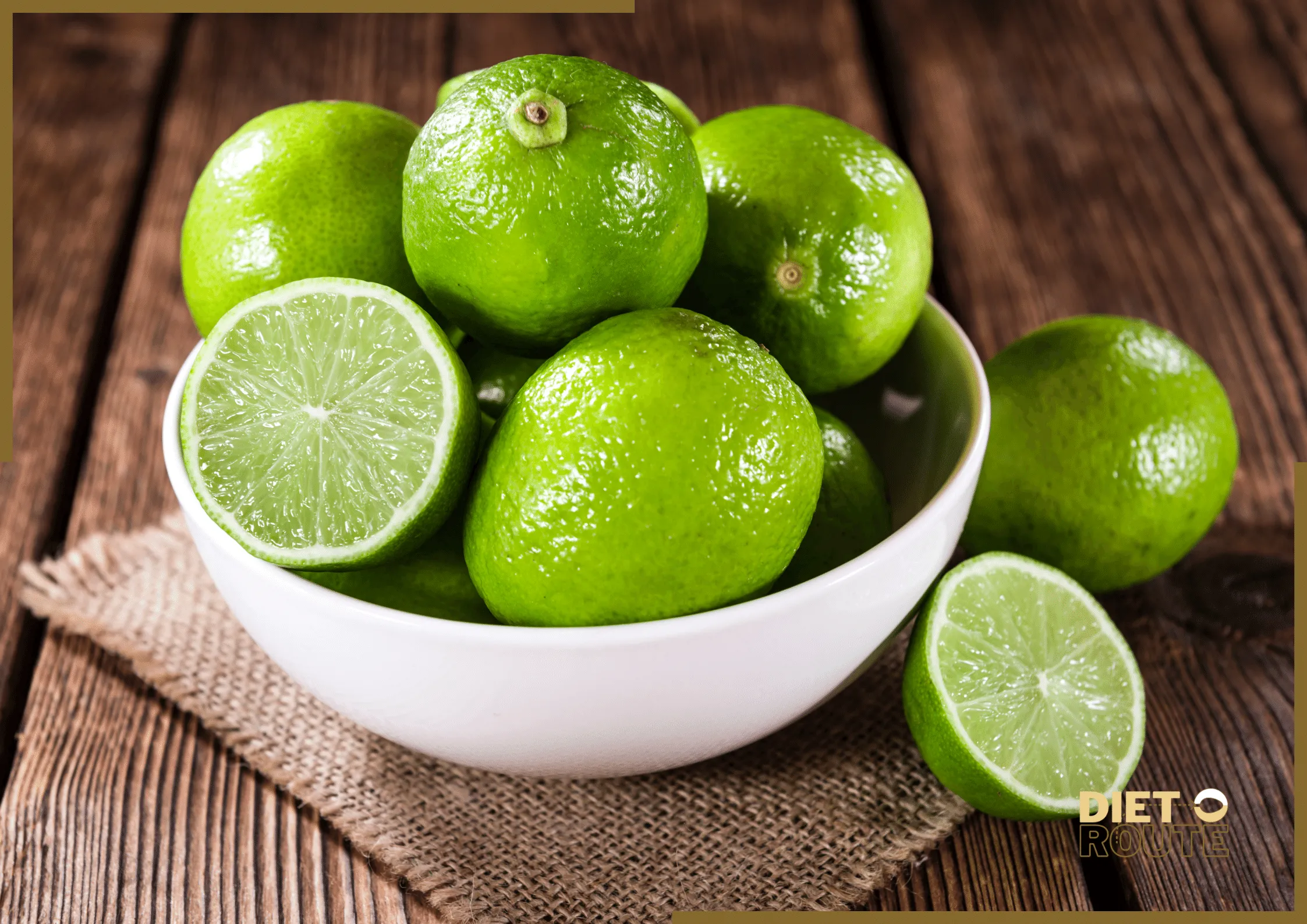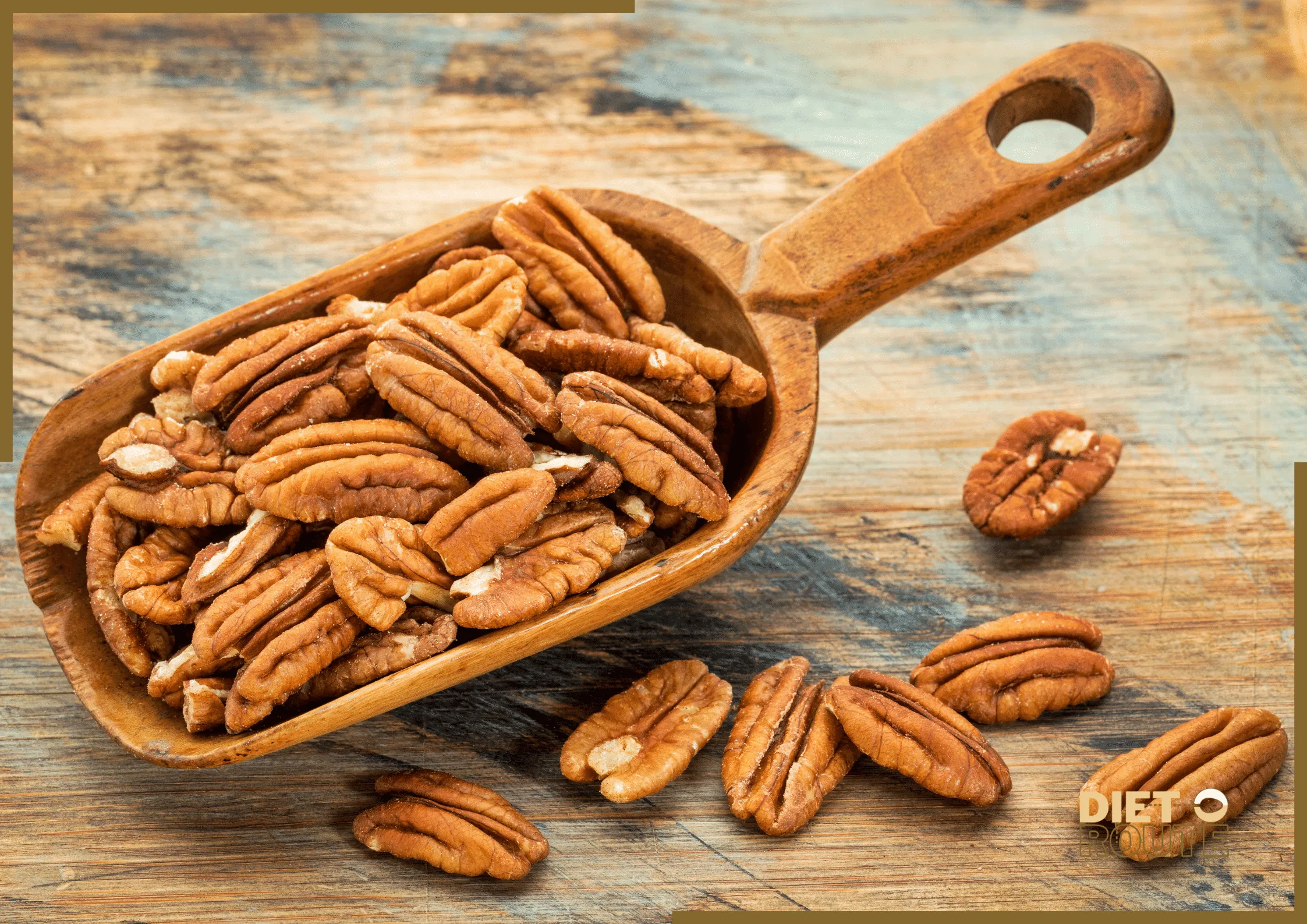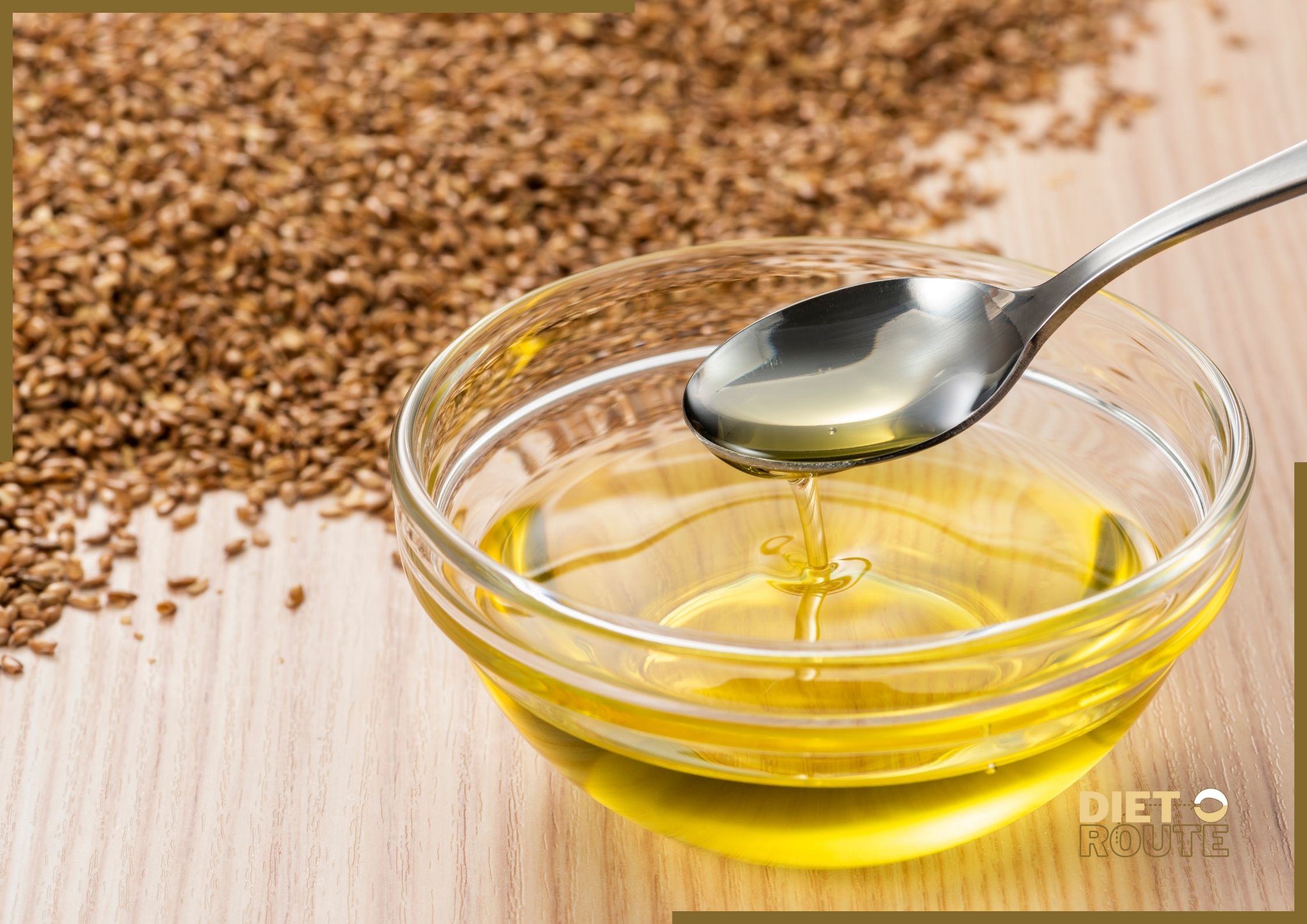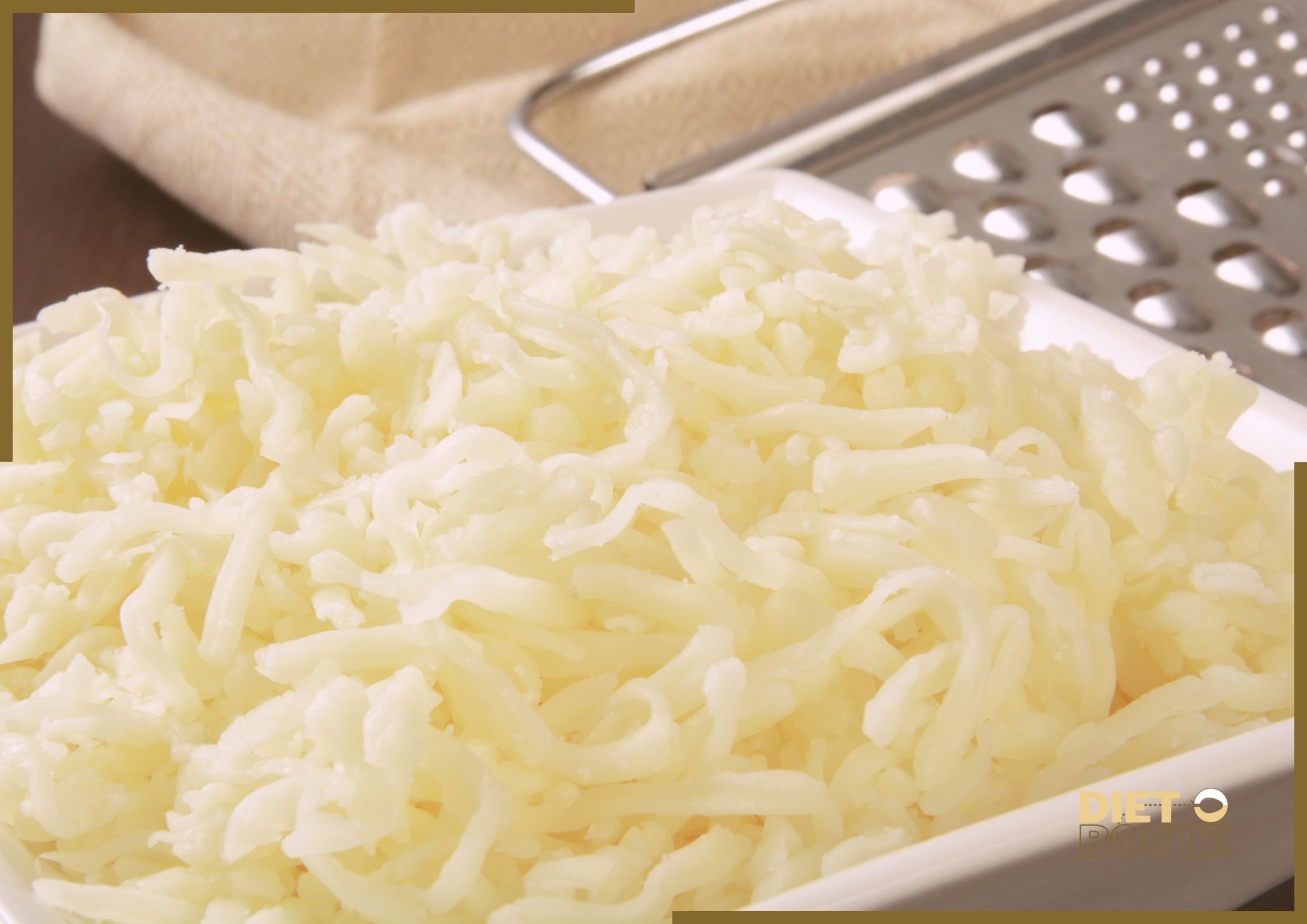Table of Contents
Introduction
Basil seeds, also referred to as Sabja seeds or Tukmaria, are becoming increasingly popular due to their various health advantages. Basil plant (Ocimum basilicum) produces small black seeds that are widely used in cooking and traditional medicine. This article provides a comprehensive analysis of the nutritional benefits of basil seeds presented in a tabular format. Additionally, it covers the advantages and disadvantages of consuming basil seeds, answers common queries, and concludes with a summary.
Nutritional Value Approximately 100g
The values provided are approximate can vary depending on the size and ripeness.
| Nutrient | Amount | % Daily Value |
|---|---|---|
| Calories | 258 | 13% |
| Total Fat | 20 g | 31% |
| Saturated Fat | 3 g | 15% |
| Trans Fat | 0 g | – |
| Cholesterol | 0 mg | 0% |
| Sodium | 21 mg | 1% |
| Potassium | 714 mg | 20% |
| Total Carbohydrate | 25 g | 8% |
| Dietary Fiber | 38 g | 152% |
| Sugars | 1 g | – |
| Protein | 19 g | 38% |
| Vitamin C | 4 mg | 7% |
| Calcium | 690 mg | 69% |
| Iron | 17 mg | 94% |
| Magnesium | 440 mg | 110% |
| Phosphorus | 560 mg | 56% |
*Percent Daily Values (% DV) are based on a 2,000-calorie diet.
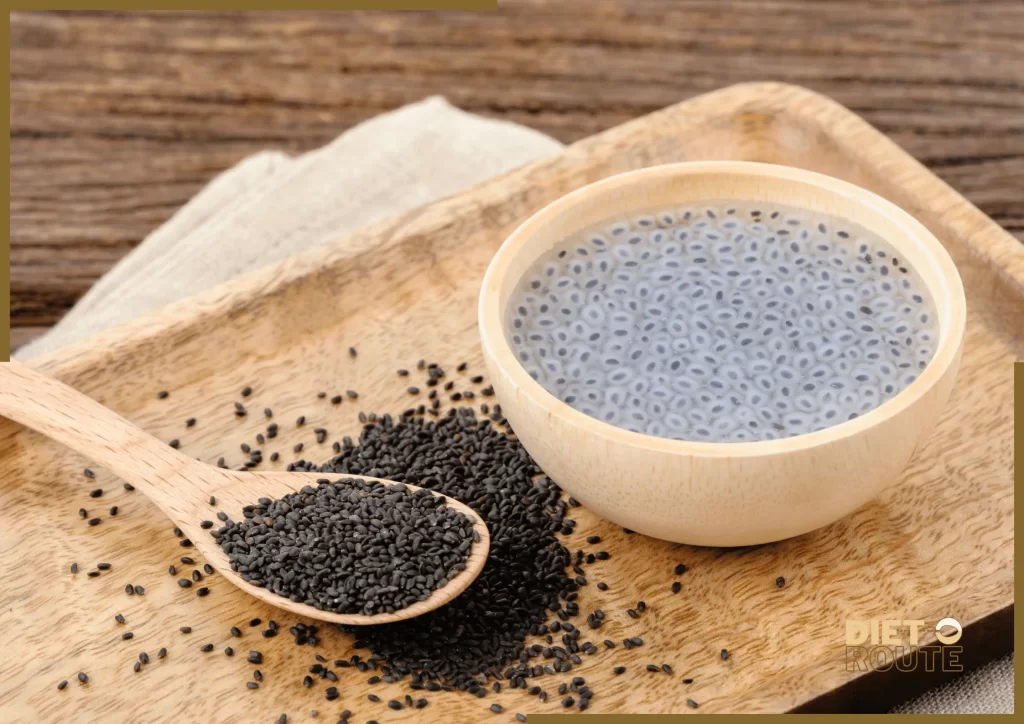
Pros
1.Basil seeds are a great source of essential nutrients such as fiber, calcium, magnesium, and potassium that promote overall health and well-being.
2. These seeds offer digestive benefits due to their high fiber content, which helps in promoting bowel regularity, preventing constipation, and aiding in digestion.
3. They can serve as a natural hydration aid as they form a gel-like substance when soaked in water, which can help maintain optimal hydration levels in the body.
4. They possess antioxidant properties that aid in combating free radicals and safeguarding the body from oxidative stress.
Cons
1.Basil seeds pose a choking hazard as they can expand and create a gel-like layer when in contact with moisture. It is important to soak them before eating to reduce the chances of choking.
2. To prevent any allergic reactions, it is recommended to refrain from consuming basil seeds if you have a known allergy to basil or other seeds.
Frequently Asked Questions (FAQs)
1.Are basil seeds and chia seeds identical?
Although basil seeds and chia seeds possess comparable characteristics, they originate from distinct plants. Basil seeds are derived from the basil plant, whereas chia seeds are sourced from the Salvia hispanica plant.
2. What is the best way to eat basil seeds?
Consuming these seeds is easy by soaking them in water or other liquids such as milk, juices, or smoothies. When hydrated, these ingredients acquire a gelatinous texture and can be incorporated into a wide range of recipes.
3. Can basil seeds aid in weight loss?
They are a great source of fiber, which can aid in promoting a feeling of fullness and regulating hunger. For successful weight management, it is recommended to incorporate them into a well-balanced diet and a healthy lifestyle.
4. Do basil seeds have the potential to reduce blood pressure?
They are a great source of potassium, which is beneficial for maintaining healthy blood pressure levels. It is crucial to seek guidance from a healthcare expert for tailored recommendations.
5. Can pregnant women consume basil seeds safely?
Before consuming these seeds, pregnant women should consult their healthcare provider to ensure its safety for their specific situation.
6. Are basil seeds safe for kids to consume?
Consulting with a pediatrician is recommended before including these seeds in a child’s diet. Ensuring that they are properly soaked and distributed in a safe and age-appropriate manner is crucial.
7. What are the culinary applications of basil seeds?
They are a popular addition to beverages, desserts, and toppings due to their distinctive texture and nutritional advantages. These fruits are versatile and can be used as a topping on yogurt or puddings, added to lemonade, falooda, or blended into smoothies.
8. What are the potential side effects of consuming basil seeds?
They are safe for consumption when taken in moderate amounts. Some people may encounter bloating, gas, or stomach discomfort. Starting with small quantities and monitoring your body’s reaction is recommended.
9. Do basil seeds have benefits for hair and skin health?
These seeds are known for their potential to enhance skin and hair health due to their unique properties. The scientific evidence supporting these claims is limited, and the results may vary from person to person.
10. Where to purchase basil seeds?
You can easily find it in local grocery stores, health food stores, and various online marketplaces. Make sure to select a trustworthy brand that provides premium quality seeds.
In a Nut Shell
Basil seeds provide numerous health benefits due to their high nutrient content. These seeds are rich in essential minerals, high in fiber, and have low calorie content. Adding them to your diet can improve digestion, hydration, and overall health. It is crucial to weigh the advantages and disadvantages, soak them adequately before ingestion, and seek advice from a medical expert if you have any apprehensions. Discover the versatility of these seeds and incorporate them creatively into your favorite dishes to reap their benefits.
These seeds offer numerous health benefits and can be a great addition to a healthy lifestyle. They are rich in nutrients and may provide various health advantages.
